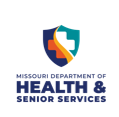June 3, 2025

Online Map and Text Number will Help Families Locate Local Summer Food Programs
The Missouri Department of Health and Senior Services Summer Food Service Program is designed to provide breakfast, lunch, suppers and /or snacks to children living in eligible areas during the summer months and during times of public emergencies, when children do not have access to free or reduced-price meals at school.
An online interactive map is provided to help families in Missouri find out where their children can receive free meals this summer. The map shows sites where children must sit and eat the meal, but the map also shows certain rural sites that are designated as non-congregate multi-day meal pick up sites.
Community organizations serve the meals at schools, churches, parks, swimming pools, YMCA facilities, Boys and Girls Clubs, and other spots where children gather when school is not in session.
The meals are provided to all children that attend the meal service location. Children do not have to register and there is no fee to participate in the program.
The map and more information about the Summer Food Service Program can be found at www.health.mo.gov/sfsp/.
Meals will be served to children age 18 and under. They are also provided to individuals age 18 to 21 that have been determined by a state or local educational agency to be mentally or physically disabled and who participate in an established school program for the mentally or physically disabled and who participate in an established school program for the mentally or physically disabled.
Funding for the Summer Food Service Program is provided by the U.S. Department of Agriculture.
More information about the Summer Food Service Program is available online at www.health.mo.gov/sfsp or by telephone at 888-435-1464 (toll-free). Individuals who are deaf, hard-of-hearing, or have a speech disability can dial 711 or 1-800-735-2966. Community organizations that would like to become sponsors may also email the Summer Food Service Program at sfsp@health.mo.gov or write to the Missouri Department of Health and Senior Services, Summer Food Service Program, P.O. Box 570, Jefferson City, MO, 65102 for more information.
In accordance with federal civil rights law and U.S. Department of Agriculture (USDA) civil rights regulations and policies, this institution is prohibited from discriminating on the basis of race, color, national origin, sex (including gender identity and sexual orientation), disability, age, or reprisal or retaliation for prior civil rights activity.
Program information may be made available in languages other than English. Persons with disabilities who require alternative means of communication to obtain program information (e.g., Braille, large print, audiotape, American Sign Language), should contact the responsible state or local agency that administers the program or USDA’s TARGET Center at (202) 720-2600 (voice and TTY) or contact USDA through the Federal Relay Service at (800) 877-8339.
To file a program discrimination complaint, a Complainant should complete a Form AD-3027, USDA Program Discrimination Complaint Form which can be obtained online at: https://www.usda.gov/sites/default/files/documents/ad-3027.pdf, from any USDA office, by calling (866) 632-9992, or by writing a letter addressed to USDA. The letter must contain the complainant’s name, address, telephone number, and a written description of the alleged discriminatory action in sufficient detail to inform the Assistant Secretary for Civil Rights (ASCR) about the nature and date of an alleged civil rights violation. The completed AD-3027 form or letter must be submitted to USDA by:
- mail: U.S. Department of Agriculture Office of the Assistant Secretary for Civil Rights 1400 Independence Avenue, SW Washington, D.C. 20250-9410; or
- fax: (833) 256-1665 or (202) 690-7442; or
- email: Program.Intake@usda.gov
This institution is an equal opportunity provider.
Click Here to Go to Interactive Map
Click Here to Learn More about Summer Food Program









